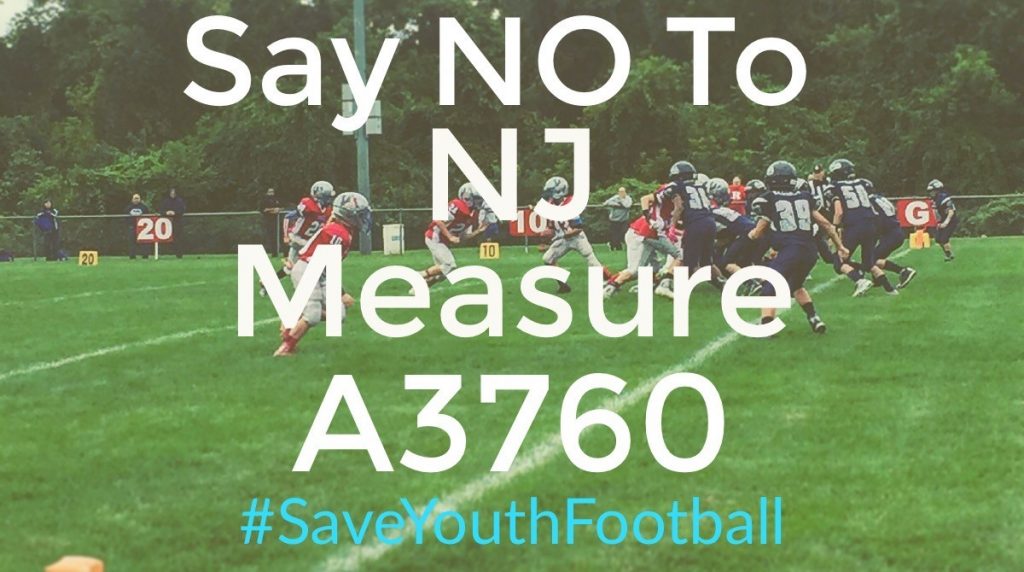Why Youth Football SHOULDN’T be Banned-Coach Marcus Borden
How do you feel about the measure A3760 which would prohibit children under age 12 from participating in tackle football?
First, I would like to say that politicians should limit their involvement in trying to pass legislation that affects parents making their own decisions regarding their child’s sport preference.
There has been increased awareness about CTE and concussions suffered by NFL athletes. However, this does not mean that youth league, high school level or even college football players will suffer these effects as only a small percentage of players ever get to the highest level of competition.
The move by Youth Leagues, Pop Warner, USA Football, High School Associations as well as Colleges and Universities to improve the safety of the game has been on going. Certification of coaches, “The Heads-Up Program”, rule modifications and the limiting of full-contact practices during the week have all made dramatic safety improvements.
Let the parents decide. Let the professionals that have actually played this game, coached it and know how to continually improve it be that source of information for the community.
What are some life lessons/skills kids learn when they play youth football?
The lessons learned on the playing field are many. Working as a team with one common goal is an important quality that will serve one well in later life. Overcoming adversity and facing challenges prepares one for life’s disappointments. Discipline, respect for others and sportsmanship whether you win or lose are just a few of the core values learned on the playing field.
Join the Fight: Save Youth Football in NJ
Why do you feel youth football is under attack? There are bans proposed in several states, those states include: CA, NJ, NY, and IL (killed for now).
Football is one of the most popular sports in America. It is a physical game that is on television from August to February. The College and NFL games are some of the most watched sporting events world-wide. Some of the violent collisions or tackles by these professional athletes and advanced level college players have come under scrutiny by league officials and medical personnel. Rule changes have been enacted at the highest level of the sport.
Youth football, however, cannot be compared to College football or the NFL. The youth athlete is not physically developed enough to generate the same kind of force like those athletes that play at the highest level of this game.
If kids can’t play football until high school, what are some of the implications?
Those kids that have never played youth football are at a distinct disadvantage when entering the high school ranks. Teaching players to tackle correctly is the biggest challenge. With restrictions already in place at the high school level, the amount of live contact during the week is limited. This means that the 1st year football player will not have many opportunities to learn the proper tackling technique in a “live” situation. This increases the chances of rookie player being injured. It also forces the coach to keep this player out of competitions for safety and liability reasons.
How important are youth football programs to high school football programs?
The youth football programs are the life blood of successful high school programs. Those high schools that have excelled and won championships have had a core of youth players that usually made up a class of 20-25 seniors. These kids grew up looking forward to wearing their local community’s high school colors.
How has football evolved over the years in regard to safety, equipment, and league rules?
Equipment has continually improved over the years. Helmets offer custom fit to give each player the safest possible protection available. Air-filled jaw pads, ear pads and head pockets combined with the hard shell give today’s athlete some of the safest football gear. All of this means nothing though without the changes that have been made to improve the coaching. The mandated training on concussion protocol, proper tackling techniques, CPR and AED training, rules interpretation and league certification have helped make the game safer. Coaches now required to attend clinics to learn more about proper practice management, ever-changing rule interpretations and the importance of acclimatization of athletes during the heat of late summer.
Click the image below to sign the petition to save youth football in New Jersey
